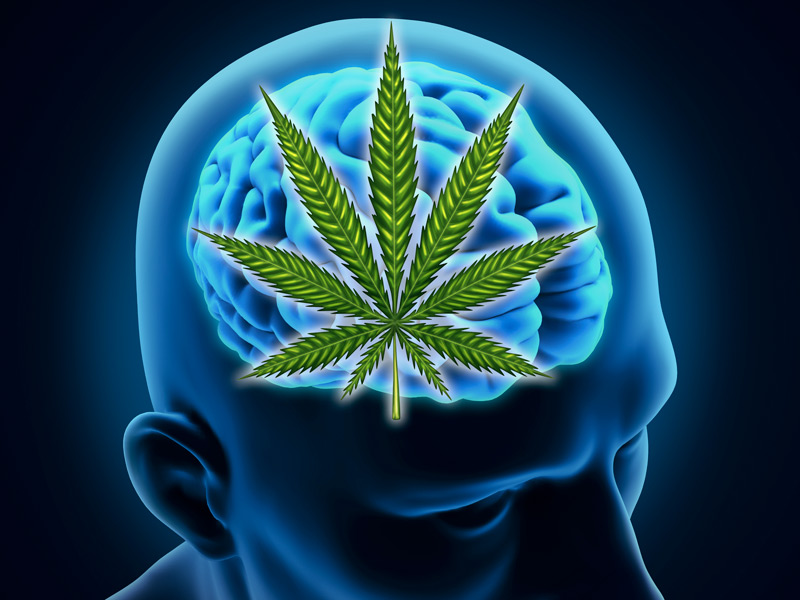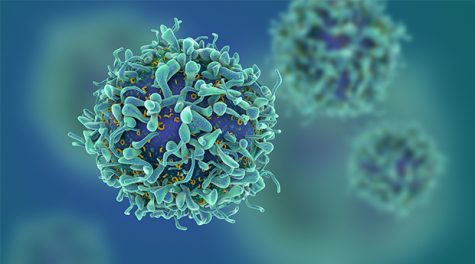Study shines a light on the neurobiological mechanisms that affect cannabis tolerance
Cannabis tolerance is closely associated with neurometabolic alterations in the brain’s reward circuitry, according to a new study published in the journal Addiction Biology. This fresh research suggests that people who consume cannabis regularly are less likely to experience adverse effects from cannabis.
Titled, “Reduced responsiveness of the reward system is associated with tolerance to cannabis impairment in chronic users“, the study on cannabis and neurobiological mechanisms was a joint collaboration between authors Natasha L. Mason, Eef L. Theunissen, Nadia R.P.W. Hutten, Desmond H.Y. Tse, Jacobus F.A. Jansen, Peter Stiers, Stefan W. Toennes, and Johannes G. Ramaekers.
“These neurobiological mechanisms are important to elucidate, both in the context of therapeutic use of cannabis-based medications –e.g. deciding on dose in long-term treatment – as well as in the context of public health and safety of cannabis use when performing day-to-day operations, such as developing traffic laws,” said Mason, who, in addition to being a corresponding author, is a PhD candidate at Maastricht University.
As one of the most frequently used illicit substances on the planet, it’s important that consumers are aware of the potential risks associated with cannabis use. Amid the evolving legal outlook for drug laws in the United States, more people are turning to the therapeutic plant for medical and/or recreational purposes. With that being said, it is crucial that everyday people understand the plant’s possible effects on the brain.
Study on cannabis and neurobiological mechanisms involved placebo
A group of 12 occasional cannabis consumers and 12 regular cannabis consumers partook in the double‐blind study. Those in charge of the study on cannabis and neurological mechanisms administered study subjects with either a placebo or a cannabis preparation. After receiving the placebo/cannabis, brain imaging scans were used to assess each person’s attentional lapses and reaction times.
The group of researchers carried out an in-depth analysis of each participant’s subjective high to gather their findings. Each group – occasional users who consumed cannabis once monthly or three times weekly and frequent consumers who consumed cannabis at least four times weekly – reported unique experiences.
Specifically, changes in the brain’s reward circuitry led to reduced functional connectivity in occasional consumers. The brain’s of chronic cannabis users, on the other hand, did not endure any significant alterations in reward circuitry.
“In the occasional users, we found that cannabis altered reward system circuitry in the brain, which was associated with our behavioral measures (increased feelings of high and decreased sustained attention). Such changes were absent in the chronic cannabis users, who did not show any brain changes or any cognitive impairment,” Mason explained once the study on cannabis and neurobiological mechanisms was complete.
“The finding that cannabis altered reward circuitry and distorted behavior in occasional users, but not chronic users, suggests the lack of behavioral response to cannabis intoxication in chronic users arrives from a blunted responsiveness in their reward circuitry, thus identifying a neurobiological mechanism of tolerance.”
Cannabis consumption creates a temporary state of decreased sensitivity
While many uneducated cannabis consumers may believe that cannabis tolerance is dependent on the specific person’s unique biology – and they would be correct, to some extent – tolerance of the cannabinoid-rich plant is “not a final, permanent state that is achieved after chronic cannabis use, but rather a temporary state of decreased sensitivity to cannabis exposure that dynamically fluctuates across the spectrum of a full-to-no experience of cannabis effects, depending on the pattern of cannabis use.”
Those were the words of Mason, who added that existing knowledge regarding the “patterns and motives underlying such patterns among medical and recreational users” is fairly limited. With that being said, more research must be carried out to determine the dose, duration and frequency of cannabis required to manage tolerance. “[This] will be of importance in the context of cannabis therapeutics and in legal settings when evaluating the impact of cannabis exposure on human function,” Mason concluded.
Even though existing evidence demonstrates that cannabis’ acute effects may be less noticeable in seasoned consumers, the study – which was initially published in the journal Addiction Biology on December 22, 2019 and is still being referenced for its findings – has broken the boundaries for its insights into the neurobiological mechanisms underlying consumption.













